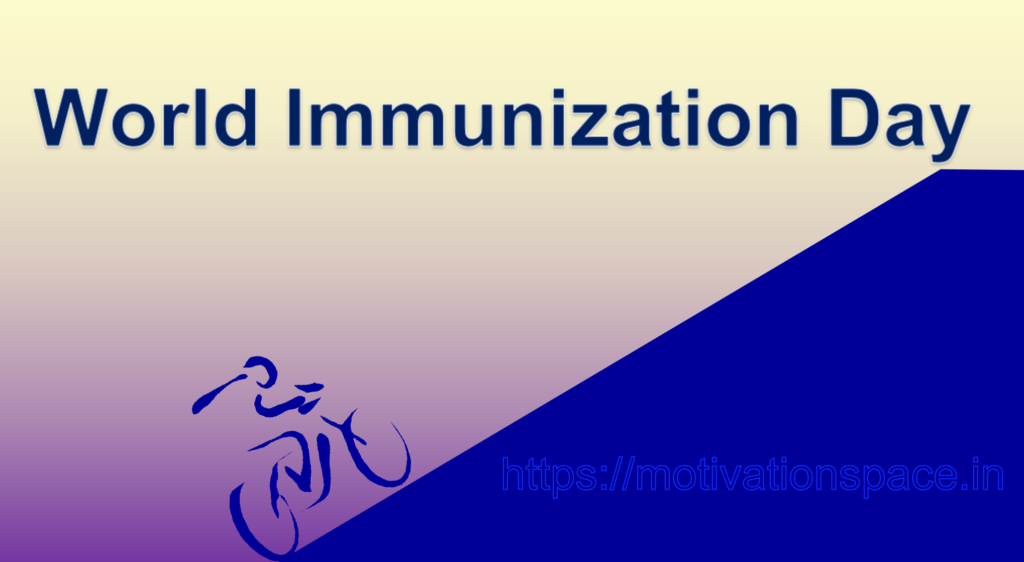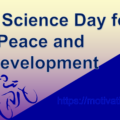Contents of this article
World Immunization Day: The Global Quest for Health and Well-being. World Immunization Day, celebrated each year on November 10th, is a time to reflect on the incredible strides made in the field of vaccination and immunization and to highlight the ongoing efforts to protect communities from infectious diseases. Immunization has proven to be one of the most effective and cost-efficient ways to prevent life-threatening illnesses, and its significance cannot be overstated. In this article, we explore the history, importance, and future of World Immunization Day.
The History of World Immunization Day
World Immunization Day, also known as World Vaccine Day, was first established in 1999 by the World Health Organization (WHO) to raise awareness about the vital role of immunization in global public health. It falls within World Health Organization’s (WHO) Immunization Week, a global initiative to promote the use of vaccines to protect people of all ages against diseases.
The choice of November 10th as World Immunization Day is significant because it marks the anniversary of the day when the smallpox vaccine was invented by Edward Jenner in 1796. Smallpox was a devastating disease that claimed millions of lives, and the development of the vaccine by Jenner marked a major breakthrough in the field of immunization.
The Importance of Immunization
Immunization is one of the most effective public health interventions, and its importance cannot be overstated. Here are some key reasons why immunization is vital:
Disease Prevention:
Immunization prevents the spread of infectious diseases, many of which can be deadly or lead to severe complications. It has led to the eradication of smallpox and the near-eradication of polio.
Herd Immunity:
High vaccination coverage within a community not only protects vaccinated individuals but also those who cannot be vaccinated, such as individuals with compromised immune systems. This concept is known as herd immunity and helps break the chain of disease transmission.
Cost-Effective:
Immunization is a cost-effective public health strategy. The economic benefits of preventing illnesses, reducing healthcare costs, and increasing productivity are substantial.
Lifesaving:
Vaccines have saved millions of lives. For example, the introduction of the measles vaccine has significantly reduced child mortality.
Reducing Disease Burden:
Immunization programs have been instrumental in reducing the burden of diseases like tuberculosis, hepatitis B, and whooping cough.
Global Health Security:
Immunization is a crucial component of global health security. It helps prevent and control outbreaks of infectious diseases that can spread rapidly across borders.
Advancements in Science:
Immunization has benefitted from scientific advancements, allowing for the development of new and improved vaccines.
Vaccines and Global Health Achievements
Vaccination campaigns have led to numerous global health achievements, improving the quality of life for millions. Some notable examples include:
Polio Eradication:
The Global Polio Eradication Initiative, which includes partners like WHO, UNICEF, and Rotary International, has made significant progress in eradicating polio from the world. Polio cases have decreased by over 99% since the initiative began.
Smallpox Eradication:
The successful global smallpox eradication campaign was made possible through widespread vaccination. In 1980, the World Health Assembly declared the world free from smallpox.
Reduction in Measles Mortality:
The introduction of the measles vaccine has led to an 84% reduction in measles-related deaths between 2000 and 2016.
Vaccine-Preventable Disease Control:
Immunization has significantly reduced the incidence and impact of vaccine-preventable diseases such as diphtheria, tetanus, and pertussis (whooping cough).
Pneumococcal and Rotavirus Vaccines:
The introduction of pneumococcal and rotavirus vaccines has contributed to the reduction of pneumonia and diarrhea-related child deaths.
Current Immunization Challenges
While immunization has achieved remarkable success, several challenges persist:
Vaccine Hesitancy:
Vaccine hesitancy, fueled by misinformation and mistrust, is a significant challenge. Public confidence in vaccines must be maintained and restored where necessary.
Access to Vaccines:
Many communities, particularly in low-income countries, still lack access to essential vaccines. Ensuring equitable access to immunization is a priority.
Cold Chain Logistics:
Some vaccines require strict temperature control, and maintaining a reliable cold chain for vaccine distribution can be challenging, particularly in remote areas.
Funding and Resources:
Immunization programs rely on funding and resources, which can be vulnerable to fluctuations. Stable funding is essential for maintaining vaccine coverage.
Emerging Diseases:
New and emerging infectious diseases can challenge the effectiveness of existing vaccines, necessitating research and development efforts.
The Future of Immunization
The future of immunization is marked by ongoing efforts to expand access, enhance vaccine development, and address emerging threats:
Expanding Access:
Efforts are underway to ensure that more people, especially in underserved areas, have access to vaccines. Initiatives like Gavi, the Vaccine Alliance, are working to improve vaccination rates globally.
Vaccine Development:
Ongoing research is leading to the development of new and improved vaccines, including those against diseases like malaria and HIV.
mRNA Vaccines:
The success of mRNA vaccines for COVID-19 has opened new possibilities for vaccine development. This technology holds promise for addressing a range of diseases.
Research and Surveillance:
Monitoring and research into emerging diseases are essential for identifying new threats and developing appropriate vaccines and treatments.
Global Collaboration:
International collaboration remains critical. Global partnerships, including the Coalition for Epidemic Preparedness Innovations (CEPI), facilitate cooperation in addressing global health threats.
Public Health Lessons from Immunization
Immunization offers valuable lessons for public health:
Preventive Medicine:
Immunization exemplifies the power of preventive medicine. Preventing diseases through vaccination is more effective and cost-efficient than treating them after they occur.
Global Cooperation:
Global health challenges require international cooperation. Immunization programs illustrate the impact of coordinated efforts and partnerships.
Health Equity:
Addressing disparities in vaccine coverage is essential for achieving health equity and reducing health inequalities.
Resilience and Preparedness:
A robust immunization infrastructure is a crucial component of public health preparedness, allowing for rapid responses to outbreaks and emerging threats.
Conclusion for World Immunization Day
World Immunization Day stands as a testament to the incredible impact of vaccines on global health. Immunization programs have saved countless lives, reduced the burden of diseases, and contributed to the advancement of public health. As we navigate the complex landscape of emerging infectious diseases and address challenges such as vaccine hesitancy, equitable access, and vaccine development, it is important to recognize the transformative power of vaccines and the enduring need for vaccination campaigns. By celebrating World Immunization Day and supporting ongoing efforts in immunization, we contribute to a healthier and more resilient global community, where the quest for health and well-being continues to be at the forefront of our collective efforts.


